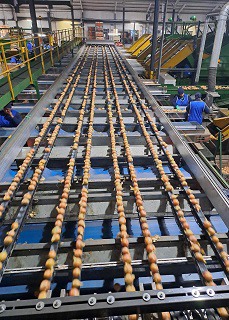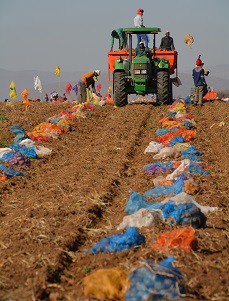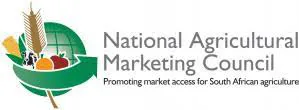The National Agricultural Marketing Council hosted a workshop on South Africa's fresh produce chain today in which economist Thabile Nkunjana provided an overview of recent broad trends in international trade and its impact on South African fresh produce. The fresh produce sector has been at the mercy of international turbulence and climate-related problems, made more complex by recent trade restrictions.
"As of March 13, 2023, at least 22 countries have implemented 26 export bans on certain food, ten countries had implemented 14 export limitation measures, affecting specifically onions, potatoes, fruit, and other processed food," he noted.
State of EU energy influences veg trade Africa remains the largest buyer of South Africa's vegetable exports, taking almost two-thirds (64%) of vegetables – dominated by onions and potatoes – in 2022.
Africa remains the largest buyer of South Africa's vegetable exports, taking almost two-thirds (64%) of vegetables – dominated by onions and potatoes – in 2022.
Asia and the Middle East accounted for 10% of South Africa's vegetable exports, while the share of the European Union is a significant 22%.
"The interesting thing is that from the European Union, because of high energy prices affecting greenhouse production and their vegetable supplies, we're seeing opportunities there, at least in the short-term, for South African fresh produce."
Apart from onions, there is also a pull for South African pumpkins.
Issues within the European processing sector means that the market could remain available, he remarked.
The European Union's Green Deal will have an increasing impact on its trading partners (and it remains South Africa's largest market for fruit).
It's important for producers to follow policy developments to mitigate climate change, like the EU nitrogen reduction which, he remarked, has the potential to change fresh produce dynamics in the near future.
Other African countries fill Botswana's gap Logistical inefficiencies in Africa allows South Africa to increase its footprint on the continent where, he believes, it can still expand.
Logistical inefficiencies in Africa allows South Africa to increase its footprint on the continent where, he believes, it can still expand.
Botswana's decision to close their border to South African vegetables in order to stimulate domestic production has been felt in the trade numbers.
Right: harvesting potatoes in Limpopo Province
"South Africa's export earnings from vegetable trade with Botswana has declined by 50% because of the bans on South African fresh produce," Thabile told the meeting.
"Fortunately, demand from Angola, Mozambique, and the DRC has offset the loss of Botswana trade."
Challenges
Top of mind for vegetable producers are fertilizer costs, vulnerable to the vagaries of international politics such as Russia's war; fuel and fertilizer account for 25% of the input costs of the average South African potato producer.
He singled out ginger and garlic as two commodities in South Africa for which the market remains an issue in the face of increasing imports.
Bilateral trade agreements with countries like South Korea, China, Japan, Vietnam, Taiwan, India, Saudi Arabia, Bangladesh, and the Philippines would be of particular value to South African fresh produce exporters, he said, in the way it has materialized for South African beef exporters.
"These countries have relatively large populations and good economic prospects. Particularly for fruit, we need to focus on trade agreements with these countries. We have a good chance to increase and expand our production, but it's important to ensure local supply and to bring smaller players into the market," he said. "We need to channel smallholder farmers into the commercial channel."
"Generally, as much as we have challenges, there are still opportunities for fresh produce from SA because of a rising demand specifically from the global space especially for vegetables," he concluded. For more information:
For more information:
Thabile Nkunjana
National Agricultural Marketing Council
https://www.namc.co.za/










